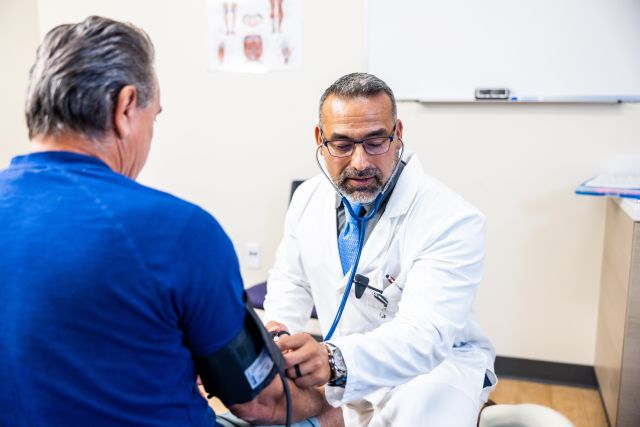Updated on January 29, 2024.
There’s no denying it: Preventive health care works. That means working to maintain overall wellness and addressing health issues early, before they turn into big problems. When this happens, people can improve their well-being and extend their life expectancy, while keeping healthcare costs to a minimum.
Preventive health services for adults may include screenings for diseases such as colon cancer and depression, immunizations like flu and pneumonia shots, and vital tests for blood pressure, blood sugar, and cholesterol levels. According to at 2018 study published in Health Affairs, however, only 8 percent of adults aged 35 and older in the United States received all the crucial preventive health services recommended for them.
The stages of preventive care
Experts generally think of preventive care in three stages.
Primary prevention
This involves helping you avoid getting a disease or illness in the first place. Key strategies include getting regular vaccines, improving or changing unhealthy behaviors, and avoiding harmful substances in food, air, and water as much as possible.
According to some estimates, as much as 80 percent of chronic disease and premature death could be avoided by adopting healthy behaviors such as these:
- Quitting smoking
- Losing weight
- Improving diet and nutrition
- Getting regular physical activity
- Reducing stress
- Practicing safer sex
- Limiting alcohol use
- Taking proper safety precautions (such as wearing bike helmets and seat belts)
- Getting regular checkups with a healthcare provider (HCP)
Secondary prevention
This involves using screening tests to try to spot diseases in their earliest stages before symptoms appear and treating those diseases when they are less dangerous.
For example, the 5-year relative survival rate for breast cancer that is localized in the breast is 99 percent. That means when breast cancer is caught in its earliest stage, 99 percent of people with the disease live for 5 years after diagnosis. When breast cancer is caught later, after it has spread through the body, the 5-year relative survival rate is 31 percent.
Tertiary prevention
This third stage of prevention involves managing conditions after they’ve been diagnosed to stop their spread or development. HCPs might use treatments such as medications and then carefully monitor patients for any complications that might emerge during their treatment.
Putting prevention together
To see how the three stages work together, take diabetes, for example. Primary prevention of diabetes involves making lifestyle changes to prevent getting the disease in the first place. That might involve getting regular exercise and adopting a diet based on fruits and vegetables, whole grains, lean proteins, and healthy fats, like those found in seafood and plants.
Secondary prevention would include getting regular health checkups and screenings to keep track of blood sugar levels. If high blood sugar levels are detected, it might mean taking medicine to lower those levels before the disease gets worse.
Tertiary prevention would involve setting up a regular routine of screenings and checkups and treating diabetes to avoid the disease’s complications, such as those that affect the kidneys, heart, nerves, and eyes.
The overall key of prevention is to get into the habit as much as possible of seeing an HCP regularly, even when you’re not feeling sick of having symptoms. Only seeing an HCP when you’re ill means you may lose the benefits of primary and secondary prevention.
Other vital reasons for preventive services
Another reason primary and secondary prevention are so important? Many health conditions come with no visible symptoms at all.
High blood pressure (also known as hypertension) is often known as a “silent killer” because it doesn’t have symptoms you can feel or notice. But if high blood pressure develops and worsens, it can lead to heart disease or even a heart attack or stroke.
The only way to detect high blood pressure is to get regular blood pressure screenings. These don’t necessarily need to happen in an HCP’s office. Many pharmacies and drug stores provide blood pressure monitors you can use as often as you like for free. You can also get your blood pressure checked at community health fairs or workplace screenings or purchase an at-home blood pressure monitor.
The good news is that the benefits of preventive care are clear. According to the Centers for Disease Control and prevention (CDC), rates of heart disease among adults in the U.S. have been decreasing over the years of 2009 to 2018, in large part due to preventive care.
Another important reason to keep up with preventive care is that it can help you build a relationship with an HCP. If you don’t love the HCP you saw for your last screening, seek out someone new. Once you find an HCP you can trust and you feel comfortable talking to, that relationship can help you support good health for a lifetime.







